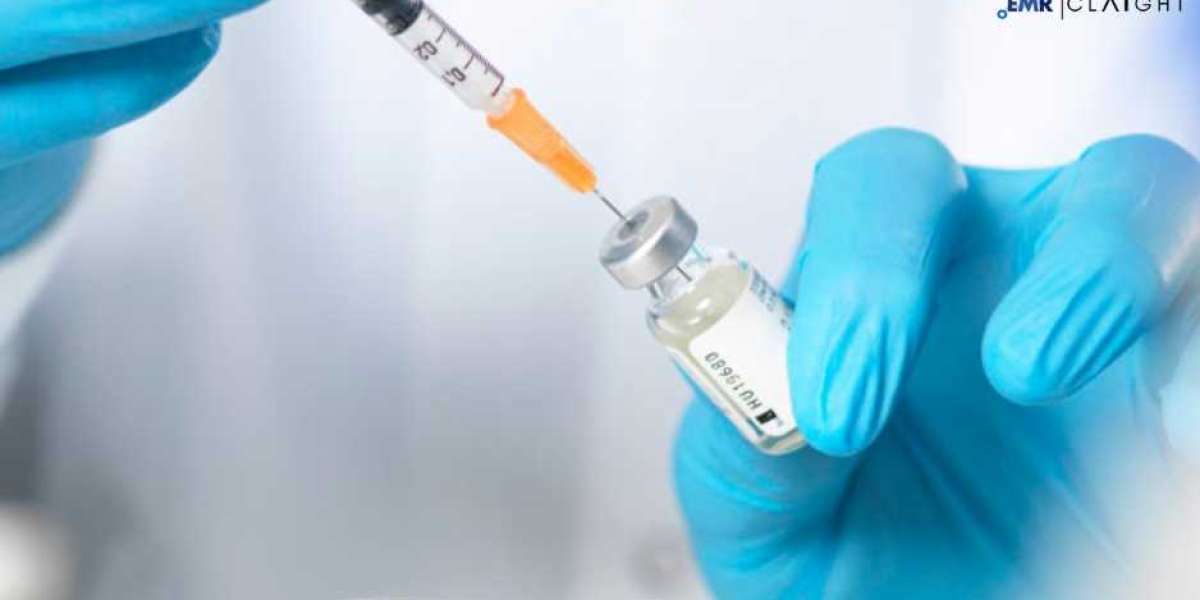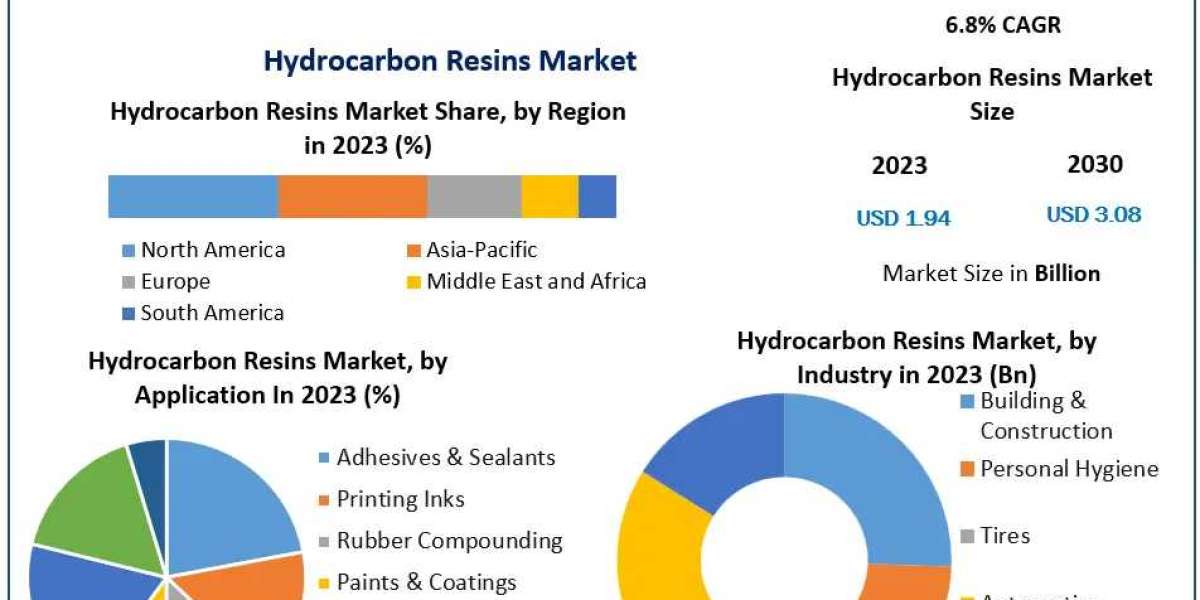The global neoantigen cancer vaccine market has been rapidly gaining momentum, driven by increasing investments in cancer immunotherapy research and technological advancements in the healthcare sector. Neoantigen-based vaccines are a promising area of cancer treatment that targets the unique antigens present on the surface of cancer cells. These vaccines work by stimulating the immune system to identify and destroy cancerous cells, offering a more personalised and effective approach to cancer therapy. With a market size valued at USD 116.74 million in 2023, the neoantigen cancer vaccine market is set to experience exceptional growth, anticipated to reach USD 13,431.43 million by 2032, growing at a compound annual growth rate (CAGR) of 69.43% during the forecast period.
This article delves into the key trends, drivers, challenges, and opportunities shaping the neoantigen cancer vaccine market, along with the key players in the industry and their strategies.
Get a Free Sample Report with Table of Contents : https://www.expertmarketresearch.com/reports/neoantigen-cancer-vaccine-market/requestsample
Key Market Drivers
1. Rising Investments in Immunotherapy Research
The significant rise in cancer cases worldwide has sparked increased investment in cancer immunotherapy. Neoantigen vaccines represent a revolutionary shift from traditional cancer treatments like chemotherapy and radiotherapy by using the body's immune system to fight cancer. They offer a more targeted and less toxic treatment option, driving increased funding from both government and private sectors.
2. Technological Advancements in Vaccine Development
The healthcare sector has seen rapid technological innovations, including advancements in genomic sequencing, artificial intelligence (AI), and bioinformatics. These technologies enable researchers to identify neoantigens specific to individual patients' cancers, making personalised neoantigen vaccines more feasible. Additionally, the advancement of mRNA vaccine technology, which played a crucial role in COVID-19 vaccine development, is now being leveraged to create cancer vaccines, further boosting market growth.
3. Increased Cancer Prevalence
The rising prevalence of cancer, particularly in the aging global population, has intensified the demand for innovative and effective therapies. According to the World Health Organization (WHO), cancer is one of the leading causes of death globally, and this trend is expected to continue in the coming years. This rising incidence of cancer provides a strong market opportunity for neoantigen-based vaccines.
4. Personalised Medicine Approach
Neoantigen vaccines represent a personalised treatment approach, with the potential to tailor therapies to individual patients based on their unique cancer profiles. Personalised medicine is increasingly becoming a key focus in oncology, and neoantigen vaccines are at the forefront of this shift. The development of patient-specific therapies has shown promising results in improving treatment efficacy and minimising side effects.
Market Challenges
1. High Development Costs
One of the primary challenges facing the neoantigen cancer vaccine market is the high cost of research and development. Developing a personalised cancer vaccine requires extensive genomic analysis and advanced technology, which can be expensive. Additionally, the manufacturing and distribution of personalised vaccines involve complex processes that further increase costs.
2. Regulatory Hurdles
Although neoantigen cancer vaccines have shown promising results in clinical trials, regulatory approval is a lengthy and challenging process. The regulatory pathways for personalised vaccines can vary across regions, which may delay their widespread adoption. Moreover, clinical trials for cancer vaccines often face difficulties in demonstrating significant efficacy, which can hinder the approval process.
3. Patient Heterogeneity
The diversity in cancer types, genetic mutations, and patient immune responses presents a significant challenge in neoantigen vaccine development. What works for one patient may not work for another, making it challenging to develop a one-size-fits-all solution. Overcoming patient heterogeneity will require extensive research to better understand cancer biology and the immune system.
Market Opportunities
1. Collaborations and Partnerships
To overcome development costs and regulatory hurdles, many pharmaceutical companies are forming strategic partnerships with biotechnology firms, academic institutions, and research organisations. These collaborations enable resource pooling, sharing of expertise, and faster progress in the development of neoantigen vaccines.
2. Expansion into Emerging Markets
With the growing healthcare infrastructure in emerging markets, particularly in Asia-Pacific, there is significant growth potential for neoantigen cancer vaccines. Increasing awareness of cancer treatments and rising healthcare expenditures in countries like India, China, and Brazil create opportunities for vaccine developers to enter these untapped markets.
3. Next-Generation Vaccines
Next-generation neoantigen vaccines that combine multiple antigens or work in conjunction with other therapies, such as immune checkpoint inhibitors, hold significant promise. These combined therapies could enhance the immune system's response to cancer, improving vaccine efficacy.
Market Segmentation
By Type of Cancer
The neoantigen cancer vaccine market can be segmented based on the type of cancer targeted. Some of the most common cancers targeted by neoantigen vaccines include:
- Melanoma: Melanoma is one of the cancers that has shown promise in early neoantigen vaccine trials due to its high mutation rate.
- Lung Cancer: Lung cancer, particularly non-small cell lung cancer (NSCLC), is another key focus area.
- Breast Cancer: Breast cancer therapies are rapidly evolving, and neoantigen vaccines are seen as a potential breakthrough.
- Colorectal Cancer: Colorectal cancer, which has a significant global burden, is also a key target for neoantigen vaccine development.
By Technology
Neoantigen vaccines are developed using several technologies, including:
- DNA-based Vaccines: These vaccines use the patient’s DNA to produce antigens that stimulate the immune system.
- RNA-based Vaccines: RNA-based vaccines are a promising alternative due to the success of mRNA technology in COVID-19 vaccine development.
- Peptide-based Vaccines: These vaccines use short fragments of the target cancer protein to induce an immune response.
By End-User
- Hospitals
- Cancer Research Centres
- Academic Institutions
Key Market Trends
1. Advancements in Biomarker Discovery
The discovery and identification of novel biomarkers play a critical role in the development of personalised cancer vaccines. Researchers are focusing on identifying new neoantigens that can be targeted more effectively, thus expanding the potential patient population for neoantigen vaccines.
2. Immunotherapy Combinations
The combination of neoantigen vaccines with other immunotherapies, such as immune checkpoint inhibitors (ICIs) and monoclonal antibodies, is a growing trend in cancer treatment. These combined therapies aim to provide a more robust and lasting immune response against cancer cells.
3. Patient-Specific Approaches
The growing trend towards personalised medicine is evident in the neoantigen cancer vaccine market. Patient-specific vaccines are tailored to an individual's genetic makeup, making them more effective in treating their specific cancer type.
Competitive Landscape
Several key players dominate the neoantigen cancer vaccine market, with ongoing research and development efforts to bring personalised cancer vaccines to market. Some of the key players include:
- Moderna Inc.: Leveraging its expertise in mRNA technology, Moderna is working on personalised cancer vaccines based on neoantigens.
- Bavarian Nordic A/S: The company focuses on developing viral vector-based cancer vaccines, including those targeting neoantigens.
- BioNTech SE: Known for its mRNA-based vaccines, BioNTech is expanding its research into cancer immunotherapy, including neoantigen vaccines.
- GSK plc: GSK is developing a range of cancer immunotherapies, including those based on neoantigens.
- Merck Co., Inc.: Merck is investigating neoantigen-based vaccines in combination with its immune checkpoint inhibitors.
FAQs
1. What are neoantigen cancer vaccines?
Neoantigen cancer vaccines are a type of immunotherapy designed to stimulate the immune system to recognise and target cancer cells based on unique antigens found on the surface of tumour cells.
2. How do neoantigen vaccines work?
These vaccines work by identifying and isolating tumour-specific neoantigens that are unique to each patient’s cancer. Once these antigens are identified, they are used to create a vaccine that trains the immune system to recognise and destroy the cancer cells expressing these antigens.
3. What is the expected growth of the neoantigen cancer vaccine market?
The global neoantigen cancer vaccine market was valued at USD 116.74 million in 2023 and is projected to grow at a CAGR of 69.43%, reaching USD 13,431.43 million by 2032.
4. Which cancers are most likely to benefit from neoantigen vaccines?
Neoantigen vaccines show promising potential for treating melanoma, lung cancer, breast cancer, and colorectal cancer, with many clinical trials focused on these areas.
5. What are the challenges in developing neoantigen vaccines?
Challenges include high development costs, regulatory hurdles, and patient heterogeneity, as different patients may have distinct immune responses to cancer treatment.
Related Content:-
1. Global Speciality Generics Market : https://www.expertmarketresearch.com/reports/specialty-generics-market
2. North America Clinical Trials Market : https://www.expertmarketresearch.com/reports/north-america-clinical-trials-market
3. Global Teledermatology Market : https://www.expertmarketresearch.com/reports/teledermatology-market



